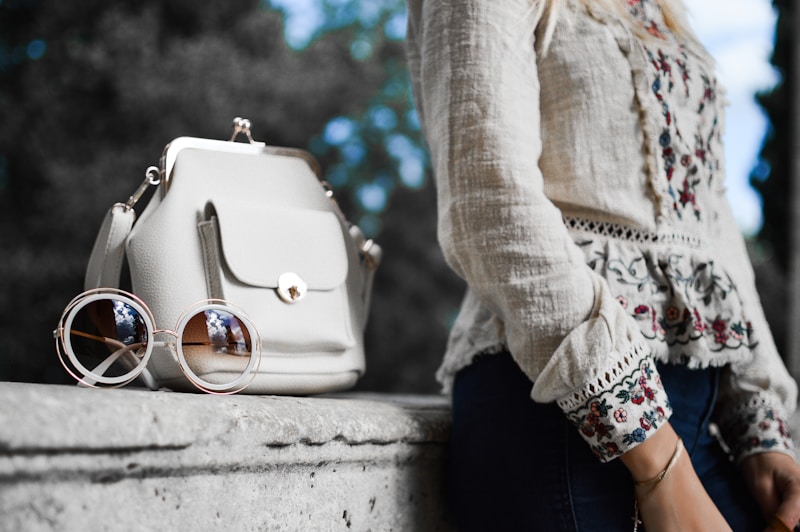Unveiling Common Adjustments in Bridal Fashion: Trends, Tips, and Transformations
Bridal fashion is a reflection of personal style, cultural significance, and the latest trends. As engaged couples prepare for their big day, understanding common adjustments in bridal fashion can significantly enhance the overall experience. In this article, we explore the various aspects of bridal fashion, including popular modifications, advice for brides, and what to expect on this transformative journey.
Understanding Common Adjustments in Bridal Fashion
Bridal gowns are often more than just a piece of clothing; they are a symbol of love and commitment. However, most brides will require some alterations to achieve that perfect fit. Here are some common adjustments brides consider:
| Adjustment Type | Description | Common Reasons |
| Hem Adjustment | Altering the length of the gown to suit the bride's height. | To ensure the dress falls correctly, especially if wearing heels. |
| Taking In/Letting Out | Adjusting the bodice to fit snugly. | Changes in body measurements or preference for a tighter/looser fit. |
| Strap Adjustment | Modifying or adding straps for better support. | Comfort and personal style preferences. |
| Adding a Bustle | Creating a bustle to lift the train for easier movement. | To make dancing and walking more comfortable. |
| Custom Embellishments | Adding beadwork, lace, or other details. | To personalize the gown and align with wedding themes. |
The Importance of Fit in Bridal Fashion
One of the most significant aspects of bridal fashion is fit. A well-fitted gown not only flatters the bride's figure but also enhances her confidence on her wedding day. Common adjustments, such as taking in the sides or shortening the hem, are crucial. Brides should schedule fittings well in advance to allow time for multiple adjustments if necessary.
Consulting with Bridal Experts
When it comes to making common adjustments in bridal fashion, consulting with experienced professionals can make a world of difference. Bridal boutiques often have in-house tailors or work with trusted alterations specialists. This collaboration ensures that brides receive the best advice tailored to their unique dresses and body types.
Bridal Fashion Trends to Consider
Each wedding season brings new trends, and 2023 is no exception. Brides are increasingly exploring unique designs, colors, and fittings. Here are some of the latest trends in bridal fashion:

1. Off-Shoulder Necklines
Off-shoulder necklines have made a spectacular comeback. Brides are opting for strapless or off-shoulder designs that allow for elegant jewelry to shine. This style often requires specific adjustments around the bust area to ensure that everything stays in place throughout the day.
2. Bold Colors
While traditional white dresses remain popular, an increasing number of brides are choosing bold colors such as blush, deep blue, or even black. Custom adjustments may include altering the fabric or design of an existing gown to accommodate color preferences.
3. Sustainable Fabrics
Eco-conscious brides are gravitating toward sustainable fabrics. Adjustments might involve using organic materials or even repurposing vintage gowns. It’s essential to communicate with designers to understand how to modify these fabrics effectively.
4. Unique Textures and Patterns
From lace to tulle to embroidered elements, textures play a significant role in bridal fashion. Brides seeking to add a unique pattern or modify existing lace may need specialized tailoring services to ensure the final look is seamless.
Preparing for the Fitting Process
The right preparation can make fittings much more efficient and enjoyable. Here are some tips for brides to consider before their fitting:
- Bring the Right Underwear: Wearing the undergarments you plan to wear on your wedding day can help the tailor provide an accurate fit.
- Plan Your Accessories: Bring along any accessories like shoes, veils, and jewelry to see how they complement your gown during fittings.
- Communicate Clearly: Be open about what adjustments you have in mind and listen to the tailor's advice regarding practicality and style.
Common Questions About Bridal Fashion Adjustments
Brides often have many questions when it comes to making adjustments to their gowns. Here are a few frequently asked questions:
1. How long before my wedding should I schedule my first fitting?
Typically, it’s advisable to have your first fitting six to eight weeks before your wedding date. This timeframe allows for sufficient alterations and any subsequent fittings.
2. What kind of adjustments can be made to a rented dress?
While major alterations may not be permitted on rented gowns, minor adjustments such as hemming or adding a bustle are often possible. Always consult the rental company beforehand.
3. How much should I expect to spend on alterations?
The cost of alterations can vary significantly based on the complexity of the adjustments. On average, brides might spend anywhere from $200 to $800. It's essential to budget for these adjustments as part of your overall wedding costs.
Final Thoughts on Common Adjustments in Bridal Fashion
Understanding common adjustments in bridal fashion is crucial for every bride-to-be. From hem adjustments to unique embellishments, these changes can make a significant difference in achieving that dream look. The fitting process can be enjoyable and rewarding with the proper preparations, guidance, and adjustments. Remember to communicate openly with your tailor and embrace the journey of creating a personalized gown that reflects your style.
In conclusion, whether you’re a traditional bride or one who seeks bold and modern aesthetics, the adjustments you make should not only serve the purpose of fit but also enhance your comfort and confidence on your special day. Enjoy the process, and don’t hesitate to ask your bridal experts for assistance in bringing your vision to life!